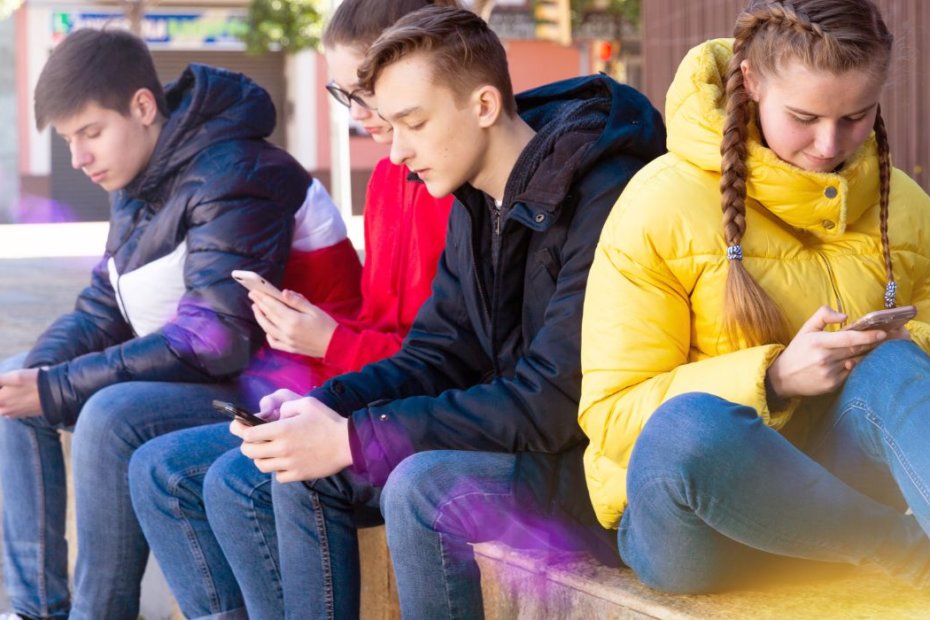There is now mounting evidence that depression and anxiety in students is caused partly by social media and the sudden move to affordable smartphones in the early 2010s, making the case for smartphone-free schools very strong.
In May 2023, the US Surgeon General issued an advisory warning that social media can carry a ‘profound risk of harm to the mental health and wellbeing of children and adolescents.’ Childhood and adolescence are critical stages in brain development that can make young people more vulnerable to harms from social media. This is why the Surgeon General has called for urgent action by policy makers, technology companies, researchers, families and young people to gain a better understanding of the full impact of social media use, minimise its harm and create safer online environments to protect children.
The Surgeon General’s press release states: ‘Recent research shows that adolescents who spend more than three hours per day on social media face double the risk of experiencing poor mental health outcomes, such as symptoms of depression and anxiety. One 2021 survey of teenagers found that, on average, they spend 3.5 hours a day on social media. Social media may also perpetuate body dissatisfaction, disordered eating behaviors, social comparison, and low self-esteem, especially among adolescent girls. One-third or more of girls aged 11-15 say they feel “addicted” to certain social media platforms and over half of teenagers report that it would be hard to give up social media. When asked about the impact of social media on their body image, 46% of adolescents aged 13-17 said social media makes them feel worse … Additionally, 64% of adolescents are “often” or “sometimes” exposed to hate-based content through social media. Studies have also shown a relationship between social media use and poor sleep quality, reduced sleep duration, sleep difficulties, and depression among youth’.
Schools can mitigate cyberbullying and online harassment by prohibiting or limiting phone usage during school hours, creating a safer and more inclusive environment for all students. This would also encourage students to engage in physical activities and outdoor play during breaks which would promote healthier lifestyles and contribute to overall wellbeing.
Dr Jon Haidt is a social psychologist, TedX speaker and author who is currently writing a book called ‘The Anxious Generation, how the great rewiring of childhood caused an epidemic of mental illness’. He has been studying the transformative effects of social media on teen mental health and believes that making school days phone free would reduce rates of depression, anxiety and self-harm as well as improve educational outcomes. He also suggests parents wanting to keep tabs on their children should get them a ‘dumb’ phone or watch (not internet connected) until year 9.
Dr Haidt found a global increase in loneliness at school began after 2012 due to ‘phubbing’ or ‘phone snubbing’ which encourages other students to pull out their phones, changing the school culture. He says that this year was also the start of ‘selfie culture’ and poisonous levels of visual comparison.
A global study shared by Dr Haidt has found that the younger the age a person gets their first smartphone, the worse they report their mental health as a young adult today. There is growing evidence that smartphones have a variety of detrimental effects on child development including reduction in sleep, focus and ‘real life’ time with friends, along with increases in addictive behaviours.
France banned smartphones from schools in 2018 and The Netherlands will bring in restrictions from 2024. In Australia smartphones are now banned from all public high schools, with all Victorian public schools having banned them since 2020. From 2024, The Queensland government is banning smartphones and all wearable tech such as watches from all its schools. UK secondary schools’ smartphone policies vary, being a decision for individual head teachers. They typically ensure phones are switched off and not visible while at school and can be used in the classroom only with the permission of the teacher. Many schools in New Zealand are already phone-free by choice with great success. China has set boundaries for the use of digital devices as teaching tools, limiting them to 30% of all teaching time, with students expected to take regular screen breaks.
In the US, 77% of schools have had bans in place since 2020, but since the Covid-19 pandemic those with lenient or more lax enforcement have seen the need to step up intervention. Some have come to see social media as a major contributor to poor mental health. In fact, a string of school districts across the country have even filed lawsuits against social media platforms, arguing they have helped create the nation’s surging youth mental health crisis and should be held accountable.
Declining mental health is an international phenomenon. We don’t have the luxury of waiting years until we know the full extent of social media’s effects on our young people. The research so far suggests the need for action to protect children, especially before and during puberty, is urgent. It’s therefore important for the long-term mental health of our children and teenagers that we support schools to become smartphone-free. It is of course, equally important, that we also support parents to take an active role in managing their children’s phone usage and access to social media wherever possible.
Worried about compulsive overuse of a smartphone in yourself or a loved one? Loffty assesses for device addiction, as well as 32 other mental health conditions, in people over 16 years of age. It generates an instant report flagging any conditions of concern that you can choose to share with a mental health practitioner for a better informed diagnosis and treatment plan. Assess yourself now.
